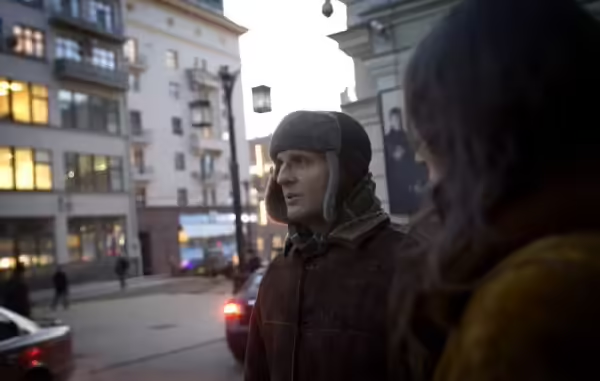
Phil Rosenthal Interview EXPORTING RAYMOND. In Exporting Raymond, Everybody Loves Raymond creator Rosenthal develops the comedy for Russian audiences.
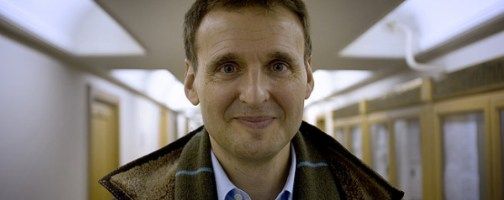
When you learn about how the entertainment industry works and how many people get a say in when and how something is made, it seems like a miracle that anything gets made at all, even when what you’re trying to get made is an adaptation of one of the most successful sitcoms of all time. In Exporting Raymond, Everybody Loves Raymond show creator Phil Rosenthal gets word from Sony Pictures International that Russia would like to develop the beloved comedy for their audiences. When he went to Moscow to help translate the series, Rosenthal quickly found himself living a real life fish-out-of-water story that was both unintentionally funny and unbelievably frustrating. The film is a backstage pass into the chaotic, frustrating, inspiring and hilarious world of Russian relations, from the writers’ room to casting sessions and production meetings with skeptical network executives, and what results is a highly entertaining journey that documents the bizarre experience and shows how real life is often much funnier than fiction.
During a recent exclusive phone interview with Collider, writer/producer/actor Phil Rosenthal talked about how this entire process happened, how many times he questioned what he was doing and wondered if he’d made a mistake in going to Russia at all, realizing that Everybody Loves Raymond was not as universal as he thought it was, the surprise of learning that the Russian executives found the show to be too realistic, and how the experience taught him not to go to the other countries that want to adapt the sitcom, but to let them do it on their own instead. Check out what he had to say after the jump:
Question: How did this whole thing come about? From when this process started, with you being approached to sell the show to Russia, did you always know you wanted to have cameras following you?
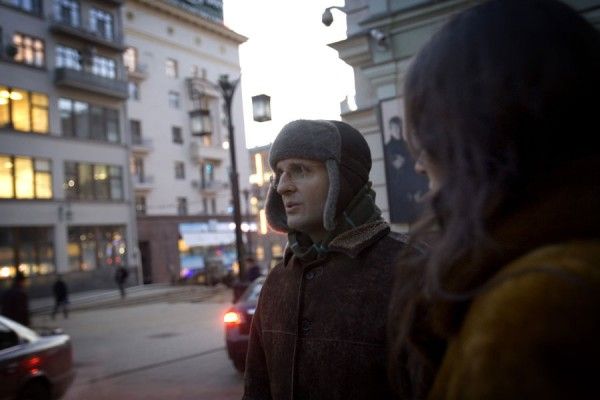
PHIL ROSENTHAL: No. Here’s how it happened: The head of Sony called me into his office and told me about how Sony had invented the sitcom in Russia. The sitcom did not exist as a form in Russia, until Sony brought The Nanny over there, a few years ago. He told me about the characters involved with making the show over there. They came from the world of soap operas to work on it. I said, “Why soap operas?,” and he said, “Because it’s also a half-hour.” It didn’t matter whether it was funny or not funny. They had some sketch show people there, and some people who came from the world of science. The Head of Comedy had worked in laser beams. And, he said, “How would you like to go over and observe how we work with them, and then come back and write a fictional feature film about a showrunner who goes over there to have a show translated?” I said, “Oh, that could be good. But, if the situation exists and the people really exist, why not bring a camera crew over and film what really happens?” He said, “Oh, I love that idea! Would you be the guy?” And, like an idiot, I said, “Yes,” and then had to go.
How many times during the experience did you question what you were doing and think about just packing up and going home?
ROSENTHAL: I thought about that the moment I landed. The moment I was left alone in the rain, in the airport, I thought, “This could be a mistake.”
What was your first reaction to Russia when you got there?
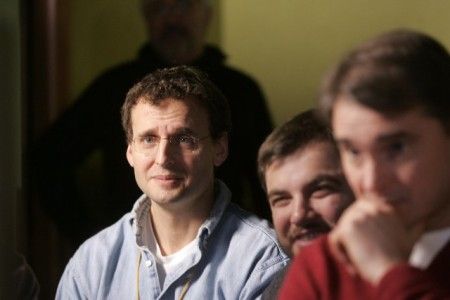
exporting-raymond-image-02
ROSENTHAL: “Get me out of here!” I felt lucky to have Eldar. By the way, I got nervous before I went because somebody actually did say to me, “Make sure you have K & R insurance, before you go over there.” I didn’t know what that was, and he told me it was Kidnap & Ransom, and I said, “That’s interesting. I’m not going.” But then, they convinced me to go and I went. They told me I could have this security guy, so I said, “Okay.” So, I had him, and after awhile I said to him, “I’m glad I have you. You’re terrific, and I feel very safe with you.” And, he said, “Mr. Rosenthal, I must tell you, Sony did not go for the gun package.” First of all, why are we saying “gun”? Second, why don’t you have one, if you should? And third, I guess I wasn’t worth it.
How differently did you envision this from how it turned out, and at what point did you realize you had actually made a comedy, even though it was unintentionally funny?
ROSENTHAL: That’s a good question. You start to realize things, maybe not as they’re happening, but when you start thinking about them. I didn’t know what I was going to get. You never do, when you’re filming something for real. You have to get lucky, that things are going to happen when you turn on the cameras, and I must say that I got very lucky. I was lucky, even with my parents. The
re’s no guarantee that they’re going to be hilarious, when you turn the cameras on them. They just happened to be. I feel very blessed that I had all this good luck. I was writing emails home to my friends and family, every other night, just telling them about what I was going through over there, and I very quickly started getting emails back, “Ha ha, keep writing to us. It’s so hilarious how you’re suffering.”
For people who have no idea how the industry is, did you have to be aware of making this relatable and funny for that type of audience? Are you surprised at how much people who aren’t involved with the industry seem to be loving this movie?
ROSENTHAL: I have to say that it does strike me as something relatable, even though it’s set in this world of Russia and the world of show business. I think we all can identify with somebody trying to get their idea across to people who don’t want it. That happens in my house with my kids. So, I think people can relate to that. Of course, my whole theory of comedy is based in reality. The funniest stuff comes from real life.
Were you ever nervous about having these meetings and being around these people that are so serious, knowing that you can’t hide the expression from your face?
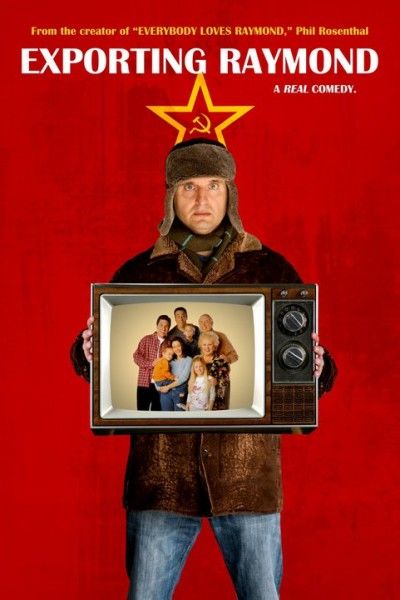
ROSENTHAL: That is a liability, maybe. It makes for a funny movie, but I can never play poker. That joy is gone from my life. I guess I happen to have one of those faces that just says everything I’m thinking. I guess it’s a gift, but I see it as a potential liability. It keeps me honest.
What surprised you the most about how the TV industry works there?
ROSENTHAL: I’m surprised it works at all. The truth is, I’m surprised it works here at all. That’s really one of the points of the movie. It’s not the Russians that are so terrible. It’s the business that’s terrible, and the business is the same wherever you go. The creative no that you get of, “No, you can’t do that,” is the same in every language. Only the accent changes a little.
At what did you realize that Everybody Loves Raymond was not necessarily as universal as you thought it was?
ROSENTHAL: The moment I went to the first production meeting and the costume lady offered her opinion. That was real. Everything in the movie is real. It really happened. She raised her hand and said, “I think this show should be used to teach the Russian people about fashion.” I said, “Really? That’s odd. That never crossed my mind when we did the show.” So, she would dress up the housewife very fancy and I said, “You know, she’s cleaning in this scene. You know that, right?” “Yes, but she’s on television,” she would say. I would say, “Yes, but she doesn’t know she’s on television. She thinks she’s cleaning.”
Were you surprised that one of the biggest complaints they had about the show was that it was too realistic?
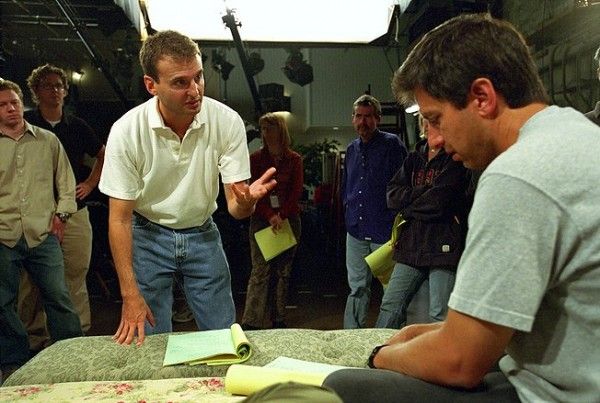
ROSENTHAL: Yes. Why would that be bad? We’ve had some success with it being relatable. The part I didn’t like, and executives are guilty of it here as well, is that they second guess what they think the audience is going to like. It’s not what they think is funny. It’s what they think the audience will laugh at. And then, when nobody is laughing at their way, they just say, “Well, the people at home will laugh,” but that’s not true either. The first test of anything is, “Do you think it’s funny?” If you’re in the writer’s room, in any writer’s room in the world, before you pitch a joke or suggest an idea, you first think it’s funny and decide to say it out loud. The next step is for the people around you to accept it or reject it, before it ever sees the light of day, on film or in front of an audience. If you ignore that instinct, I think you’re dead. I can’t say the Russians are the only people on earth guilty of that.
How many different countries have their own version of the show now, and what did the experience in Russia teach you about getting it adapted for other countries?
ROSENTHAL: It taught me not to go to the other countries. I’m not going to Poland. I’m not going to Israel. I’ve been to Israel and I found it to be a lot like Hebrew school. I like it. I like the people that are doing the show. I like the food over there. They’re all very nice. But, I’ve been already. They also wanted me, a couple of months ago, to go to Cairo, and you know what was going on in the world a couple months ago. I declined, politely. And, I think the Netherlands are doing it. I think that England wants to do a version. So, there are countries that want to pick it up. I’m thrilled if they do. I hope they don’t need my help.
How did this entire experience change the way that you view the industry now?

ROSENTHAL: I actually learned that the industry is somewhat universal. But, I also found that it’s not limited to show business. It’s business. It’s Wall Street. It’s the government. It’s the short-sightedness that could be the end of all of us. This cynical attitude of, “Well, we’re all going to hell, so we may as well grab what we can right now and screw later because there will be no later.”
Did this project renew your love for being in front of the camera? Is that something you want to do more of?
ROSENTHAL: Honestly, I actually didn’t think about being in front of the camera when I was doing it. It’s nice now. When people seem to enjoy me on the screen, that’s very nice and it does make you think, “Hey, it would be fun to do some more of this.” But, I always loved it. I loved every part of the business, except for the business. I love writing, producing, directing and the acting, too. That was actually my first love. I do enjoy it all. I did an episode of 30 Rock recently ‘cause Tina Fey said, “I’ve got a part for you. Would you like to come on?” I said, “Of course!,” ‘cause it’s fun.
